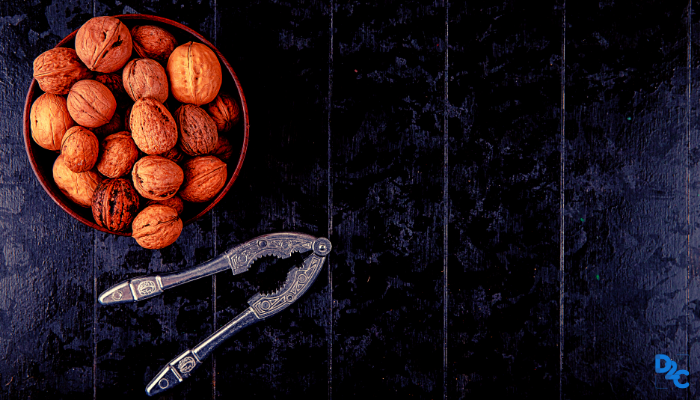The only 11 tips you need to crack case competitions -By Ankit Thakur from XLRI (Part II)

Recap from part I of the story: Following my love for case competitions, I also faced a good share of ups and downs. But finally, I ended up securing my dream internship at the FMCG organization which had provided me with my first CV point (and fortunately offered the highest stipend for HR).
Continued...
Then came the second phase post-summer internship program (SIP) selection. Now, this is the phase where students can devote a good time to participating in case competitions since the academic calendar gets a bit accommodating. I was lucky enough at this point to find two great mentors from my senior batch whose guidance and insights prepared me immensely for all the upcoming competitions. I participated in a couple of case competitions during this time whose topics were ‘Building a WOW career experience’, ‘Ideathon for a successful Business/Entrepreneurship’, ‘Future of Work’, etc.
The key to performing well in case competitions is ‘Consistency’ and ‘Improvisation’. As we did more case competitions, we realized more what worked and what didn’t, what the judges were more probable to ask, and what might interest them most in our presentation.
Adding milestones
The most impactful time of my two years came when I contested and won the elections for the Student Affairs Council of XLRI. This new responsibility was one thing that tested my dedication towards case comps since it took a great deal of my time, especially since COVID stuck and all the life’s status quo got challenged. However, I continued participating in case competitions, and during one fine day of my internship, I woke up with a mail which declared me as the winner out of 11,000 contestants in a case competition I did two months back individually.
It involved preparing a complete business model spanning domains like operations, IT, HR, marketing, sales for an electric cab-hailing Startup. It was the most enriching case where I put myself in the shoes of an entrepreneur and worked on all the details from the valuation perspective to future strategic plans for its sustainable market leadership.
True to its culture, a B-School also teaches you every day how to ‘rise again’, for which it makes you fall. Just when I felt like my second-year journey would be smooth and it had started, I got to know that I didn’t secure a PPO. And it hurt bad. But only till I realized that I hadn’t secured a PPO, but had learned a lot by working under the exceptionally talented industry leaders during SIP.
Bringing the A-game!
From there started the third stage of my case competition participation and this time it was definitely fuelled by both desperation for a PPI/PPO and building more industrial knowledge.
And as destiny had it, I found God’s blessings in a teammate whose intelligence, creativity and resourcefulness knew no bounds. As luck had it, in the initial few case competitions we weren’t able to taste success at all. However, we sat together often and then, saw the finales of competitions in which we didn’t make it, learned what the winning teams were doing, and realized where our mistakes were. And then together we were successful in more than ten case competitions spanning both corporates and top B-Schools.
In some case comps, we failed to even make it past the first stage, but all of it definitely seemed worth it when I realized that the placements were a week away and I hadn’t consciously prepared myself for that due to being busy with multiple responsibilities and commitments. Finally, all the efforts accumulated over two years made their impact when I got selected in the final placements by one of India’s most iconic and successful firms whose legacy in the international arena had always inspired me. To a great extent, these competitions didn’t just prepare me for my upcoming corporate life but also enriched me with more knowledge, and that has been the biggest reward of all my efforts.
Tips to crack case competitions
To all those who aim to do well in the case competitions, want to participate and learn, here are a couple of tips:
- Research the industry thoroughly and do complete profiling of the firm.
- Understand the exact problem statement. Most teams start working on recommendations after reading the problem statement just once. Read the document again and again till your mind gets completely clear regarding what exactly the firm is asking for.
- In a competition you aren’t alone, so think about how you are going to separate your big idea from others. At the same time, keep in mind what the firm’s competitors are doing and have firm knowledge about their success and failures.
- Don’t always go for the big moon-shot ideas. Incremental innovation also does help many times. Thus, take a complete look at the big idea and its compatibility with the company’s current offerings, the potential for the future, and experience with the past.
- Don’t ever ignore the numbers. A winning solution isn’t the dreamlike idealistic one but the most realistic one. And to corroborate that, you need facts, industry research reports, supporting data for costs, expected market figures, company revenues, etc
- Identify your core offering- is it a product, an idea, an innovation, structure change, process improvement, etc?
- The presentation is the trickiest part. For this, I recommend going through the document shared by the firm to see exactly what they are asking for and connecting that with the slide headings and sub-heading. Break the things asked into answers. Often, I have seen that the solution participants are saying and what’s on-screen, doesn’t match plenty of times. So, make it a coherent and compelling narrative. Communicate your ideas, instead of merely presenting them.
- Even if you didn’t make it through the initial stages but are getting to see the presentation by top teams, do witness it seriously since it provides you an opportunity to see what the ‘winning idea’ was.
- Each case competition is a new journey, so don’t take the baggage of past disappointments into it but definitely, the learnings obtained.
- And for all of the above to work, choose the right team. Pick people with complementary skills and ways of thinking. The best of ideas don’t come from industry research and consulting reports but ‘team brainstorming’ sessions.
- Don’t lose hope. It’s a cliché but the only reality when preparing for one case comp after another during the entire two years of B-School. Because you always either learn or win, there is never a loss.
Here are a few articles that might pique your interest:
- This is how Chirag Mehta from IIM Bangalore won his spurs as a winner of TATA Imagination Challenge 2020
- Lifting L’Oréal Brandstorm 2021 Trophy - By Aakriti Bansal from IMT Ghaziabad
- Playing to the strength of a strong strategy -Winners of HUL LIME 11 Subhrajit, Shubhrajyoti and Srinath from NITIE Mumbai - Dare2Compete
- The intense experience of becoming the Runners up of Flipkart WiRED 4.0 -By Dhruv Pachauri from IIM Ahmedabad
- How collaboration and adaptiveness made us the Runners up HUL FinAce Season 4 -By Team Finners from IIM Bangalore and IIM Calcutta
Login to continue reading
And access exclusive content, personalized recommendations, and career-boosting opportunities.














Comments
Add comment